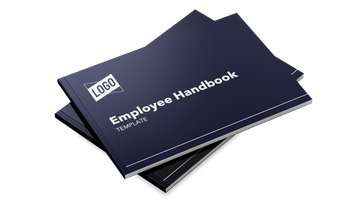How do I politely ask when an employee will return to work after a death in the family?

Table of contents
- 1.Bereavement policy
- 2.Transitioning back to work
- 3.What to say to someone returning from bereavement
Two best practices to support the transition back to work after an employee experiences a death in the family are:
- Creating a company bereavement policy so that all employees understand the benefits available to them, and
- Including this policy in your employee handbook so that it is readily available when needed.
Bereavement policy
Although there is no federal law regarding bereavement leave, most companies provide some kind of accommodation, even if they are unable to offer paid leave. Regardless of what type of benefits you extend, be sure to treat bereaved employees in accordance with your policy.
Flexibility is important because the needs of bereaved individuals may vary quite a bit. For example, a person who loses an elderly parent due to illness is going to be in a very different state from an individual whose child or partner dies suddenly. A person who has to travel out of the country or deal with a police investigation is obviously going to need more time. Returning to work can help individuals after they have begun to work through the grieving process. However, returning to work too early or too late can be detrimental for both the workplace and the individual.
Transitioning back to work
When communicating with the employee follow these tips:
- On the initial contact after the event, offer condolences, but don’t press for a decision or personal information. Use common sense. Let the individual take the lead in that first contact. Offer help, support and reassurance.
- Communicate in a way that the bereaved is comfortable with, whether by email or phone.
- Find out how you should handle the news in the office, and if the person wants any contact from co-workers.
- Give the employee time to cope, and arrange a second contact.
On this second contact you may want to ask for specifics about their return plans, but you should use your best judgment about whether it is appropriate to ask for these details during this conversation. Again, express your condolences and sympathy.
Here’s one suggestion for how to ask an employee if they are coming to work: Rather than plunging ahead with an abrupt question, let the person talk and give you a plan. If the employee doesn’t commit to a date, you can ask some gentle, prompting questions: “Should we arrange to cover your shift next week?” Or, “Do you want to talk with Tina and prep her for Tuesday’s meeting?”. These gentle prompts may lead the way to a discussion of returning to work. If not, be direct at this point and ask clearly when the employee plans to return to work: “Do you have a date in mind when you’ll return to work?” Reference your company’s bereavement leave policy if appropriate.
If the employee isn’t sure, allow some time to sort it out, and set a firm date for the next contact. If you are outside of the time limit in your policy, you may want to discuss this with your employee so they are aware of any potential impact to pay or benefits.
While employees often need time off after such an occurrence, the workplace can also serve as an important base of support and grounding routine during this difficult period. In addition, support for an employee will be noticed by everyone and could help boost morale and employee engagement in the long run.
What to say to someone returning from bereavement
It can be difficult to know what to say when someone returns to work after a death. Traditional reactions such as sending a card, attending a funeral or visitation, and making a donation to a charity in the deceased’s name not only help the employee but also pave the way for a simple greeting when the employee returns.
Plan ahead and be prepared with simple statements such as:
- “I’m very sorry for your loss.”
- “It’s good to see you again.”
- “I’m glad you are back.”
- “Please accept my condolences.”
As managers decide what to say when someone comes back from bereavement leave, they also should be ready to listen. They can ask the returning employee what they need and how they would prefer to engage with co-workers. They also can make sure the employee is aware of any grief counseling or wellness benefits that are available.

TriNet Team
Table of contents
- 1.Bereavement policy
- 2.Transitioning back to work
- 3.What to say to someone returning from bereavement






